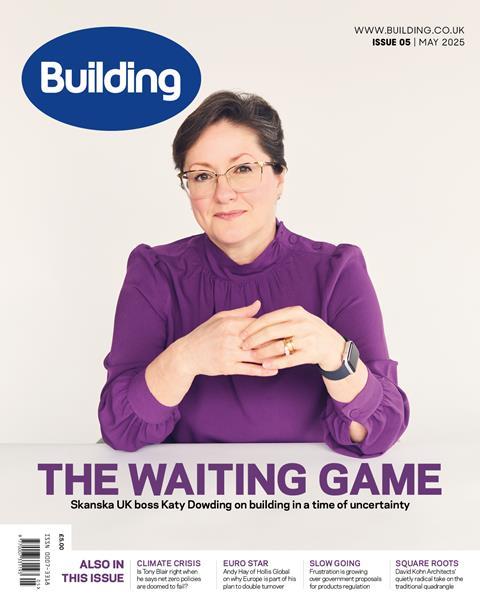There is just one week left to respond to the green paper on construction products reform, and it seems the government could really do with some help from industry experts

“The overwhelming feeling is frustration and tiredness. The anger’s kind of faded”. The words of Paul Morrell, industry grandee, former construction adviser and most recently the weary co-author of an independent review into construction product testing.
He is fed up. It is over three-and-a-half years since he began his work looking into this mind-bogglingly complex mess after the Grenfell disaster, but the consultation on many of the issues it raised is only happening now. That consultation ends next Wednesday.
And not only that, he feels the previous government showed a total lack of engagement with his and Anneliese Day’s review. By not engaging, it missed the opportunity to clarify some fundamental issues at the crucial stage. Chief among those is what to do about regulating for safety construction products that are imported into the UK from the EU, which he and other experts talk about in our analysis this week.
He says that at the very start of the process, way back in 2021, ministers and officials were asked questions about decisions over convergence or divergence with the EU. From there other decisions could have been taken about how to regulate product testing.
Morrell was not naive enough to think officials would give him a definitive answer on post-Brexit policy, but he was hoping for a steer in the right direction. No steer was forthcoming.
It is dispiriting to hear him say that products safety reform has not been prioritised and years have been wasted
In 2023 when the independent review was published it put forward options that would create the best product safety testing regime possible. What it did not do was consider the impact of the government deciding – after a ridiculous display of flip-flopping – it would scrap the UKCA product certification scheme that had been designed to move away from the EU’s own CE marking.
The Labour government seems to have indefinitely postponed the UKCA mark, ministers making it clear there is no desire to create from scratch a system that would diverge from the EU. That is a political decision, and an understandable one given the context of needing to stay aligned to our closest trading partner. But as Morrell points out, it does have consequences in that it restricts the UK’s ability to impose extra regulations on imported products.
The point is that whatever regime the government eventually decides on, there should be no greater burden on the UK testing process than they have in Europe, and no greater burden on UK product manufacturers than in Europe. Which very much limits what the government can do.
>>This week’s analysis: Has the government sold out on construction products regulation?
Morrell is clearly committed to the safety agenda and wants to see “unsafe products off the market”. But he is sympathetic to manufacturers, and thinks government has missed a trick by not making more of an effort to tap into the expertise that is in the industry until this green paper.
Manufacturers are sometimes accused of not wanting additional regulation, of wanting an easier life, but in Morrell’s experience what they are actually motivated by is wanting to compete in a fair world and not with people who cheat. So in his view there is no resistance to standard setting and regulation that leads to public safety. In many ways players in the industry have shown a better understanding of the subject than the government has.
From someone who has had such a successful career switching back and forth between industry and government, it is dispiriting to hear him say that product safety reform has not been prioritised and years have been wasted due to a lack of focus.
And Morrell is interesting on another point too: governments of all hues are really bad at systems thinking, in his experience. They do not seem to recognise that dealing with construction products and the process by which they are installed in a building involves a very complex system, in fact multiple interconnected complex systems. You play with one of the moving parts, and you affect the other moving parts. Every policy decision has consequences.
There is also some criticism of industry. It does not have a good record on learning lessons and it might not be equipped for detecting where future risks are coming from. He urges caution when it comes to innovative products and the “huge amount of hope” invested in offsite manufacturing. He is not, to be clear, against innovation or offsite solutions, but what he is saying is that industry needs intelligent systems in place so that it can never let products take shortcuts in how they perform.
So what is needed? Morrell likes to think deeply about things, so it is no surprise that his solution is to see some quality of thinking going on at government level to match the scale of the challenge. He, and plenty of other experts we have spoken to, do believe that a way through can still be found.
It is possible – indeed politically imperative – to have open trade and safe building products. And to make that happen the government must now properly engage with industry. So if you have not had your two-pennyworth, . And when you do, Morrell has one plea: consider carefully how any suggestion you make will reconcile with a world where there is continued CE marking. After much needless delay, let us hope the real work on finding solutions starts now.
Chloë McCulloch is the editor of �ڶ�����
























No comments yet